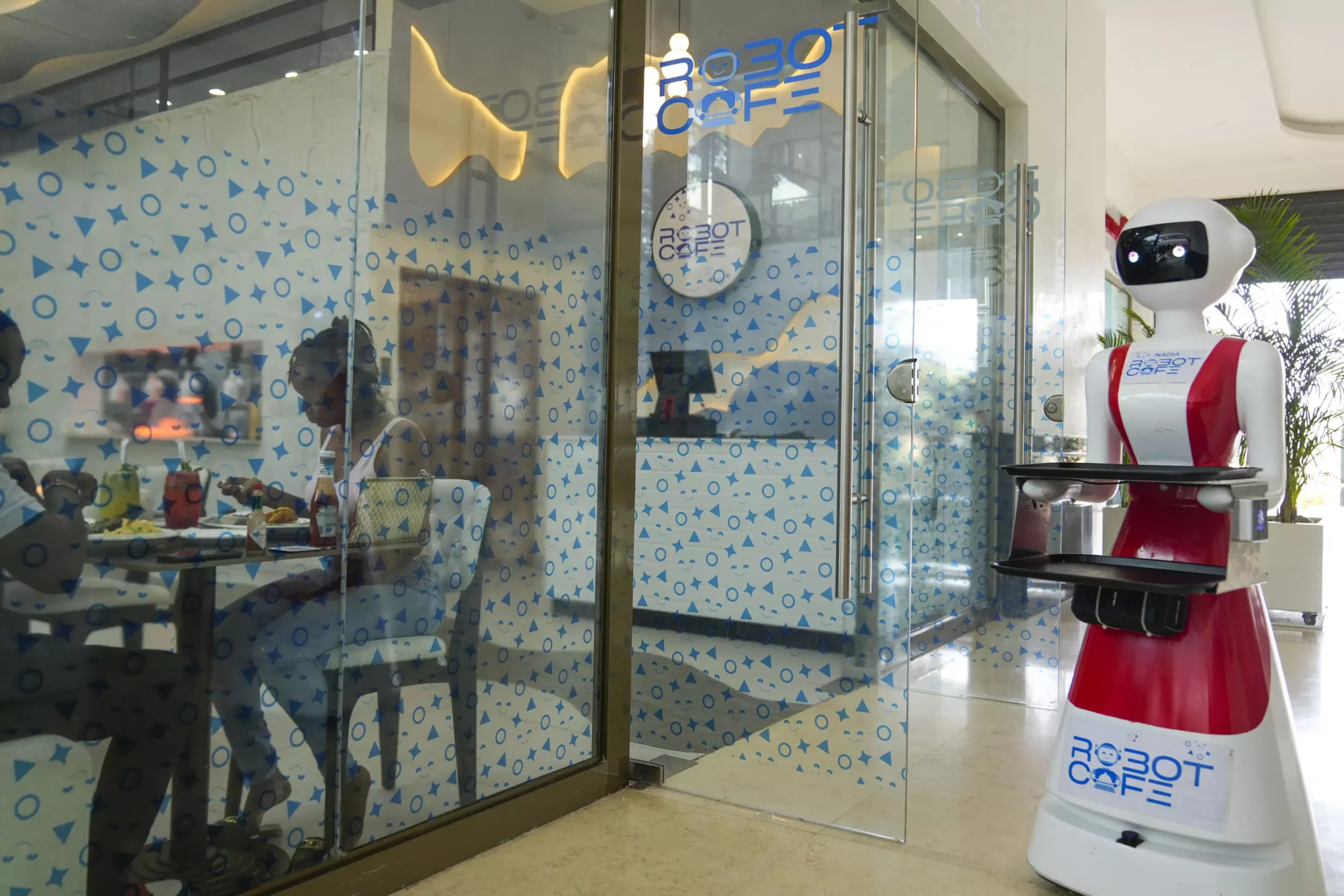In the vibrant city of Nairobi, Kenya, the emergence of the Robot Cafe has captured the attention of both young and old alike. Situated in the heart of Nairobi, this cafe stands out as a pioneer in integrating robotics into the dining experience. The cafe boasts three preprogrammed robots – named Claire, R24, and Nadia – that glide amongst human waiters to serve customers with precision and efficiency.
Nairobi has established itself as a tech hub in the East African region, earning the moniker “The Silicone Savanna.” With a thriving tech industry, the city has become a breeding ground for startups and innovations. The introduction of robots in the restaurant scene at the Robot Cafe highlights Nairobi’s commitment to embracing technological advancements.
Customers at the Robot Cafe are enthralled by the sight of robots delivering freshly prepared meals to their tables. The novelty of the experience is evident in the giggles of children and the awe of adults as they witness the seamless interaction between human waiters and robotic servers. The owner of the cafe, Mohammed Abbas, acknowledges the initial investment in importing the robots but emphasizes the positive response from customers who are eager to engage with this innovative form of service.
Despite the integration of robots into the dining experience, human waiters continue to play a crucial role in the operations of the cafe. They interact with customers, take orders, and provide a personal touch that robots are unable to replicate. While the robots can deliver food and offer basic greetings, the human element remains essential in ensuring a holistic dining experience for patrons.
As the use of robotics becomes more prevalent in various industries, including hospitality, questions arise about the future of human labor. The manager of the Robot Cafe, John Kariuki, affirms that robots are not a direct replacement for human waiters due to their limitations in providing comprehensive service. The coexistence of robotic and human service in the hospitality industry offers a unique proposition for catering to diverse customer preferences.
Hospitality industry expert Edith Ojwang underscores the importance of balancing robotic and human service to meet the varying needs of clientele. While some customers may prefer the efficiency of robotic service, others value the warmth and personal interaction that human waiters provide. The intersection of technology and hospitality invites a nuanced approach to service delivery that acknowledges the evolving preferences of patrons.
The Robot Cafe in Nairobi symbolizes the intersection of tradition and innovation in the dining experience. By embracing robotics while retaining the human touch, the cafe exemplifies the possibilities of coexisting technologies in the hospitality industry. As Nairobi continues to position itself as a technology hub, the integration of robots in restaurants reflects a broader trend towards incorporating cutting-edge solutions to enhance customer experiences.

